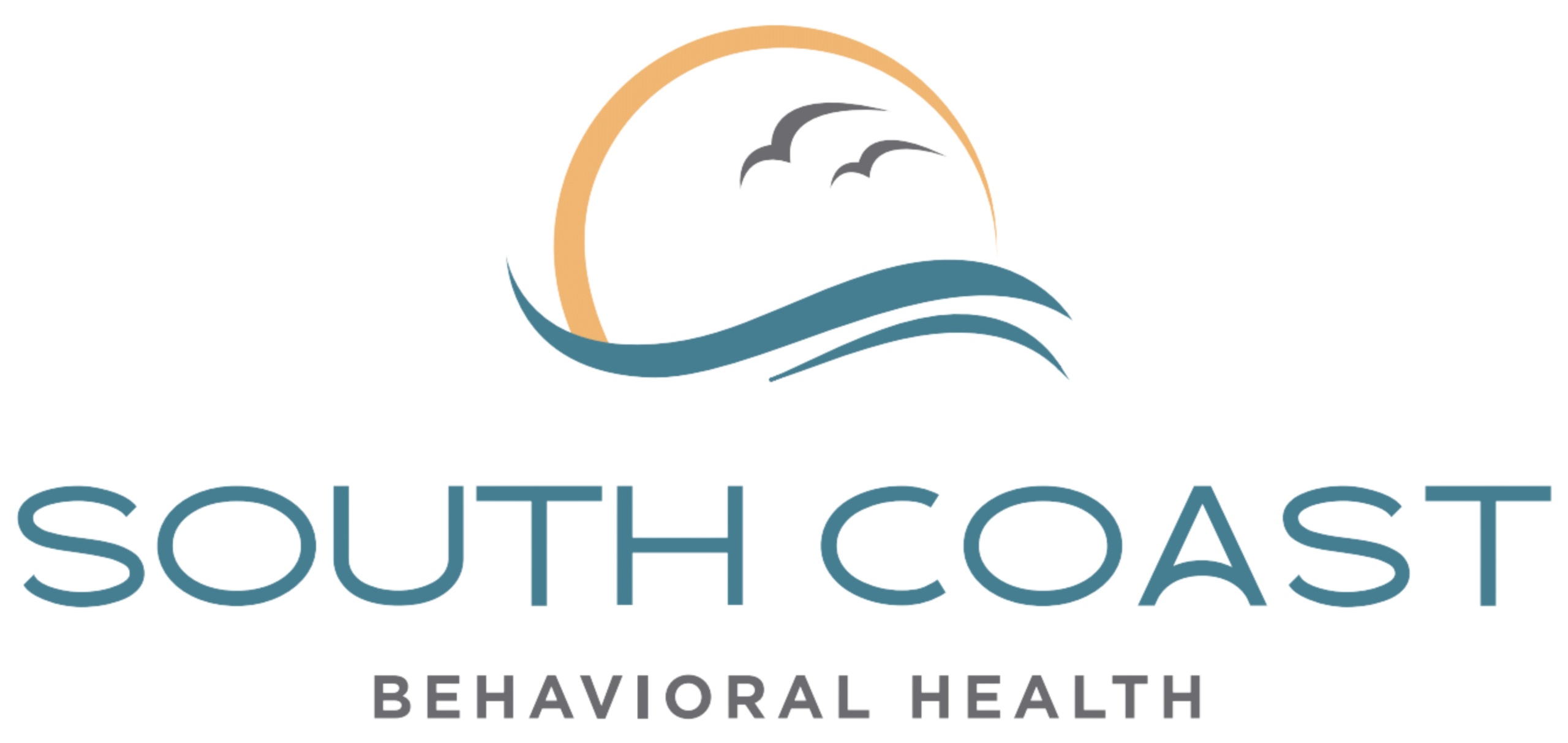Music Therapy
With roots tracing back to ancient civilizations, music therapy gained recognition in the 20th century as a formal therapeutic approach. This discipline harnesses the universal language of music to achieve non-musical goals, promoting well-being and enhancing the quality of life for people of all ages and backgrounds. At South Coast Behavioral Health, we offer music therapy as part of an overall treatment plan tailored to your needs.

What Is Music Therapy?
Music therapy is a powerful form of therapeutic intervention that taps into the profound connection between music and human emotion. By harnessing the therapeutic potential of music, it offers a unique path to healing and self-discovery, providing solace, expression, and support to individuals on their journey toward mental and emotional well-being.
One of the key benefits of music therapy is its ability to facilitate emotional expression and stress reduction. Music can evoke a wide range of emotions and help individuals express feelings that are difficult to articulate verbally. It has a unique capacity to soothe, uplift, or energize, depending on the chosen melodies and rhythms. Music therapy is particularly effective in reducing anxiety, alleviating depression, and enhancing overall mood.
Additionally, music therapy can aid in cognitive and physical rehabilitation. It has been employed to improve memory, attention, and motor skills in patients recovering from brain injuries or neurological disorders.
Qualified music therapists are the primary providers of music therapy. They are trained professionals who assess individual needs and develop personalized treatment plans. Music therapists work in various settings, including hospitals, schools, mental health facilities, and private practices. They collaborate with healthcare teams, educators, and families to integrate music into holistic care plans, offering a harmonious path to healing and self-expression.
We are open 24 hours per day, 7 days per week, 365 days per year.
What Does Music Therapy Treat?
Music therapy is a remarkably versatile therapeutic approach that has demonstrated effectiveness in addressing a wide range of mental health conditions. While its impact can vary from person to person, it has shown promise in treating various disorders and enhancing emotional well-being including:
- Depression and Anxiety: Music therapy is particularly effective in the treatment of depression and anxiety. By providing an emotional outlet and reducing stress, carefully curated music can alleviate symptoms. Patients often find solace in music, which can lead to improved mood and reduced anxiety levels.
- Post-Traumatic Stress Disorder (PTSD): For individuals dealing with the aftermath of trauma, music therapy can be instrumental. It assists in processing emotions related to traumatic experiences and promotes relaxation. Elements like rhythmic drumming can help patients regain a sense of control and stability.
- Autism Spectrum Disorders (ASD): Music therapy is widely used to help individuals with ASD enhance their social and communication skills. Structured musical activities can aid in developing emotional expression, improving attention, and fostering connections.
- Substance Abuse: In addiction recovery, music therapy plays a valuable role. It provides a constructive and expressive outlet for individuals in rehabilitation. Through songwriting, lyric analysis, and group music-making, individuals can explore their emotions and develop healthier coping mechanisms.
- Dementia and Alzheimer’s Disease: Music therapy is often utilized to enhance the quality of life for those with dementia and Alzheimer’s disease. Familiar tunes from the past can evoke memories and stimulate cognitive function. It also fosters social interaction in group sessions.
While music therapy exhibits broad applicability, its effectiveness may vary depending on individual preferences and needs. For instance, it tends to be particularly effective for conditions that benefit from emotional expression and relaxation, like depression and anxiety. However, its role as a standalone treatment or part of a comprehensive therapeutic plan should be assessed on a case-by-case basis. In many cases, it complements other therapeutic modalities, enhancing overall care and patient outcomes.
How Does Music Therapy Work?
Music therapy is a therapeutic modality that employs the power of music to address a wide range of mental health issues. When integrated into addiction treatment programs, it follows a structured process designed to harness the psychological and neurological effects of music for healing. Here’s an overview of how music therapy works and its role in addiction treatment:
Assessment
The journey typically begins with an assessment conducted by a qualified music therapist. During this phase, the therapist evaluates the individual's unique needs, preferences, and goals. They may inquire about musical tastes, emotional triggers, and any specific challenges related to addiction.
Goal Setting
Based on the assessment, the therapist collaboratively sets goals with the individual. These objectives could include improving emotional regulation, enhancing self-expression, or developing healthier coping strategies. Goal-setting ensures that the therapy is tailored to meet the individual's specific needs.
How Does Music Therapy Work?
Music therapy can be approached in two main ways:
- Active Music Therapy: In active sessions, individuals actively engage with musical instruments, voice, or songwriting. This approach encourages self-expression and creativity, providing a safe outlet for emotions.
- Receptive Music Therapy: Receptive sessions involve listening to carefully selected music. The therapist guides the individual through a structured listening experience, encouraging reflection, relaxation, and emotional processing.
Depending on the treatment plan and individual preferences, music therapy can be conducted in group or individual settings. Group sessions may promote social bonding and peer support, while individual sessions offer more personalized attention.
Neurological and Psychological Mechanisms
Music therapy leverages the brain’s intricate response to music. Music can stimulate various brain regions associated with emotions, memory, and motivation. This neurological engagement facilitates emotional expression, relaxation, and cognitive processing. It can also release neurochemicals like dopamine, which contribute to feelings of pleasure and reward, aiding in mood regulation.
Beyond neuroscience, music therapy taps into the psychology of addiction. Music provides a non-verbal means of expressing complex emotions often associated with addiction, such as grief, anger, or anxiety. It helps individuals explore and process these emotions in a safe and supportive environment.
Throughout the treatment journey, progress is regularly evaluated, and goals are adjusted as needed. Music therapists maintain a flexible and responsive approach to ensure the therapy remains effective.
Music therapy, with its creative and holistic approach, serves as a valuable tool in addiction treatment. Whether through active participation or receptive listening, it offers individuals a unique channel for self-discovery, emotional healing, and personal growth. By addressing the psychological and neurological aspects of addiction, it contributes to a comprehensive and holistic recovery process.
Tips for Successful Music Therapy
Embarking on a music therapy journey, especially for the first time, can be an enriching and transformative experience. Here are some tips to ensure a successful and meaningful music therapy session:
- Openness and Trust: Approach the therapy with an open heart and mind. Trust your music therapist, as they are trained professionals who create a safe and non-judgmental space for your exploration and expression.
- Communication: Be honest and open about your thoughts, feelings, and expectations. Effective communication with your therapist will help tailor the therapy to your unique needs and goals.
- No Musical Skills Required: Music therapy is not about musical talent. You don’t need to be a musician to benefit from it. Your therapist will guide you through the process, whether you’re playing an instrument or simply listening.
- Emotional Release: Be prepared for emotions to surface during sessions. Music can be a powerful trigger for feelings, including sadness, joy, or nostalgia. Embrace these emotions as part of your healing journey.
- Patience: Understand that progress may not always be linear. Some sessions might feel more impactful than others. Trust that the cumulative effect of music therapy will contribute to your overall well-being.
- Active Participation: If you’re engaging in active music therapy, participate with enthusiasm. Experiment with different instruments, vocalizations, or songwriting. The more actively you engage, the more you’ll get out of the experience.
- Receptive Sessions: During receptive sessions where you listen to music, allow yourself to fully immerse in the music. Let go of distractions and focus on the sensations, emotions, and memories that arise.
- Reflect and Journal: Consider keeping a journal to document your thoughts and feelings before and after each session. Reflecting on your experiences can provide valuable insights and track your progress.
- Consistency: Try to attend sessions regularly. Consistency can lead to more profound and lasting therapeutic benefits.
- Post-Session Self-Care: After a session, take time for self-care. Reflect on your experience, engage in relaxation techniques, or continue listening to music that resonates with you during the session.
- Feedback: Provide feedback to your therapist about what works best for you. This input helps tailor future sessions to align with your preferences and needs.
Expect your music therapy journey to be a dynamic and evolving process. Each session is an opportunity for growth, self-discovery, and emotional healing. Embrace the therapeutic power of music, and you may find it to be a profound catalyst for positive change in your life.
Music Therapy at South Coast Behavioral Health
At South Coast Behavioral Health, we recognize the immense therapeutic potential of music. As a crucial component of our comprehensive mental health and addiction treatment programs, Music Therapy plays an essential role in fostering holistic recovery.
Our commitment to providing the highest quality care extends to every aspect of our treatment programs, including the integration of Music Therapy. Led by skilled and certified music therapists, this evidence-based approach offers a unique channel for emotional expression, self-discovery, and healing.
Addiction treatment has evolved over time. South Coast Behavioral Health offers the latest, research-backed treatment approaches so our clients get the exceptional care they need to recover from substance abuse and maintain long-term sobriety.
- Expert Guidance: Our therapists are experienced in using music as a therapeutic tool. They tailor sessions to individual needs, ensuring a personalized and effective experience.
- Safe and Supportive Environment: South Coast Behavioral Health is dedicated to creating a safe, non-judgmental, and nurturing environment for therapy. This setting encourages participants to explore their emotions and challenges openly.
- Holistic Healing: We believe in treating the whole person, not just the symptoms. Music Therapy aligns with our holistic approach to mental health and addiction treatment, addressing the emotional, psychological, and even physical aspects of recovery.
- Diverse Techniques: Our therapists employ a variety of music therapy techniques, including active music-making, songwriting, lyric analysis, and receptive listening. This diversity allows us to cater to each individual’s preferences and therapeutic goals.
- Emotional Expression: Music is a universal language that can transcend words. It provides a safe outlet for expressing complex emotions, reducing stress, and promoting relaxation.
- Enhanced Well-Being: Music Therapy at South Coast Behavioral Health aims to enhance overall well-being. It can improve mood, boost self-esteem, and help individuals develop coping skills for dealing with life’s challenges.
- Complementary Approach: Music Therapy works in harmony with other evidence-based therapies and treatments. It complements traditional counseling and therapeutic modalities, enhancing the overall effectiveness of our programs.
Choosing South Coast Behavioral Health for your Music Therapy needs means accessing a wealth of experience, a dedication to individualized care, and a commitment to your overall well-being. Our holistic approach, skilled therapists, and safe environment make us a trusted partner in your journey toward recovery and improved mental health.
Get A Confidential Assessment From A Recovery Specialist
Music Therapy in Orange County, CA
Interested in exploring music therapy or other complementary modalities? Contact us today for more information on how to start your journey to improved mental health.
We provide music therapy for men within our medical detox and residential treatment centers in Irvine, CA.
We offer music therapy for women at our medical detox and residential treatment centers in Huntington Beach, CA.
We provide music therapy for men within our residential inpatient facility in Costa Mesa, CA.
We provide music therapy during our PHP and IOP programs in Newport Beach, CA.
















